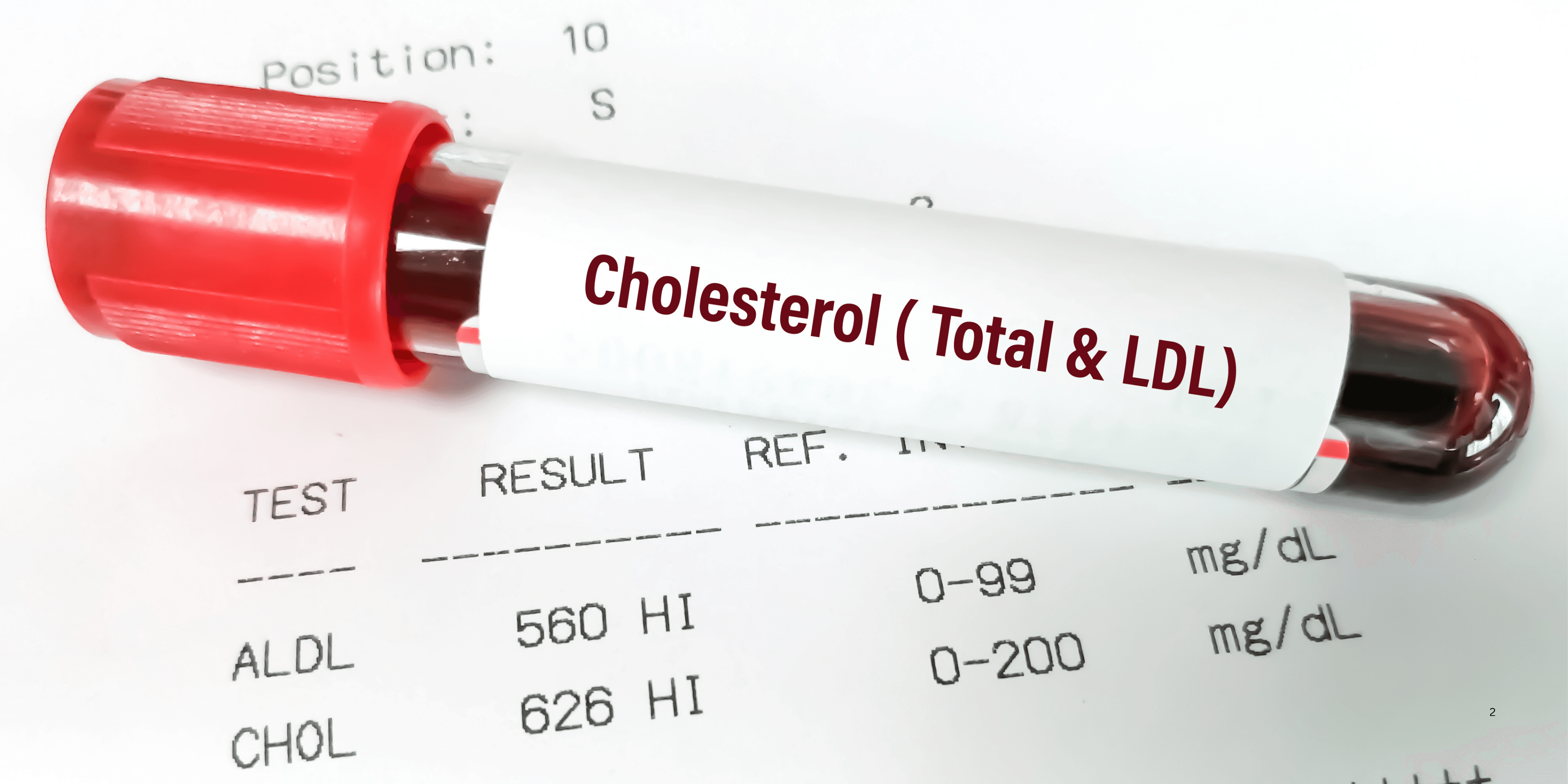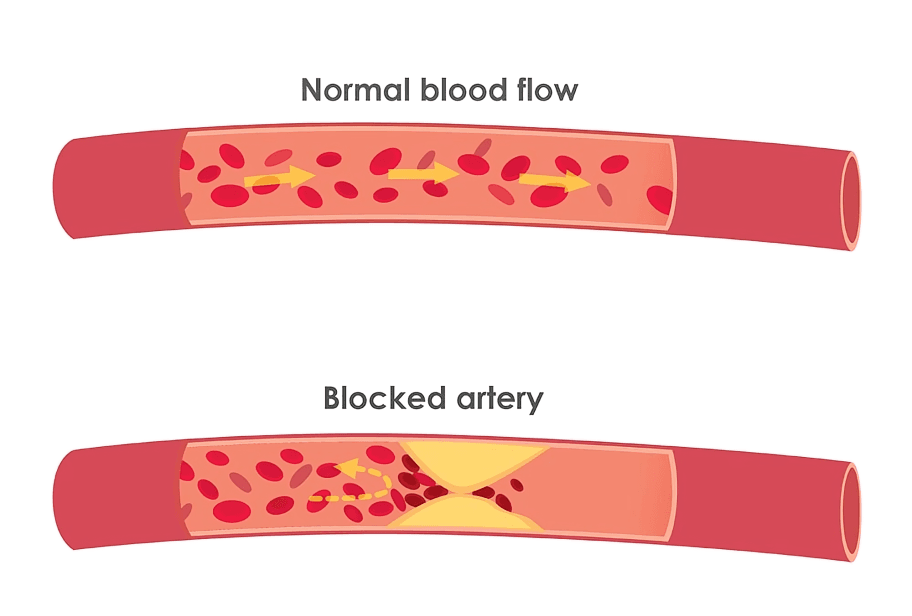
“
Understanding high cholesterol is crucial for maintaining a healthy heart and avoiding serious conditions like heart attacks and strokes. It occurs when fatty deposits build up in your blood vessels, limiting blood flow. Thankfully, there are effective ways to manage it through medical advice, proper nutrition, and regular exercise. 1
1
”
Renowned doctors emphasize that cholesterol isn't inherently bad; it's essential for hormone production and cell health. The danger starts when high LDL clogs arteries, increasing heart disease risk.1
High cholesterol usually has no symptoms, making it a silent risk factor. Many people discover it only after a major event like a heart attack, so regular blood checks are essential for early detection.2

LDL cholesterol is often called "bad cholesterol" because it can lead to plaque buildup in arteries. HDL, or "good cholesterol," helps remove excess cholesterol, reducing cardiovascular risk over time.
Eating saturated fats—found in red meat, butter, and processed snacks—can raise LDL cholesterol. Replacing these with unsaturated fats from nuts, olive oil, and fish improves heart health significantly. 3
Genetics can play a strong role in high cholesterol. Familial hypercholesterolemia is an inherited condition where the body struggles to remove LDL cholesterol, requiring early and more aggressive treatment. 4
Trans fats, found in many baked and fried foods, are particularly harmful. They increase LDL while reducing HDL, making them a double threat to heart health and a major contributor to cholesterol imbalance. 5
Fiber-rich foods, such as oats, beans, and fruits, help absorb cholesterol in the digestive tract. Including soluble fiber daily can reduce LDL levels and benefit overall metabolic health naturally. 6
Cholesterol levels rise with age due to slower metabolism and hormonal shifts. Regular screenings after age 20, and especially after 40, help catch problems early and guide timely interventions. 7
Overweight individuals tend to have higher LDL and lower HDL cholesterol levels. Even modest weight loss—just 5 to 10 percent of body weight—can lead to significant improvements in cholesterol balance. 8

Exercise is a powerful tool in cholesterol management. Activities like brisk walking, swimming, or cycling increase HDL cholesterol and help burn off LDL, improving your lipid profile and cardiovascular health.
Alcohol in moderation may raise HDL cholesterol, but excessive drinking raises triglycerides and can lead to high blood pressure. It’s a delicate balance that must be carefully monitored. 9
Omega-3 fatty acids found in fish like salmon and sardines reduce triglyceride levels and improve heart function. Including fish in your meals twice a week is linked to better cholesterol management. 10
Cholesterol-lowering medications, such as statins, reduce LDL levels effectively and prevent future heart problems. Doctors prescribe them when lifestyle changes aren't enough to manage high levels. 11

Plant sterols and stanols, found in fortified foods and vegetables, mimic cholesterol in the body and block its absorption. Including them regularly can help lower LDL levels without affecting HDL cholesterol.
Liver function plays a critical role in cholesterol regulation, as the liver produces and clears cholesterol. Liver diseases can disrupt this balance, so maintaining liver health is crucial for lipid control. 12
Dietary cholesterol from eggs and seafood doesn't impact blood cholesterol as much as once thought. The bigger concern is saturated fat and trans fat, which influence LDL levels more significantly. 13
Herbal supplements like red yeast rice, garlic, and psyllium have shown some promise in lowering cholesterol, but they must be used cautiously and under medical guidance to avoid side effects or interactions. 14
Children can also have high cholesterol, especially with poor diets or family history. Early education on healthy eating and activity can help prevent lifelong issues and instill heart-smart habits from a young age. 15
Cholesterol is not just a heart issue—it affects the brain too. Extremely low cholesterol may interfere with memory and mood, so balance—not just reduction—is the goal in cholesterol management strategies. 16
Leading cardiologists advise personalized cholesterol care—what works for one person may not suit another. A personalized plan based on genes, diet, exercise, and history ensures better long-term results. 17


